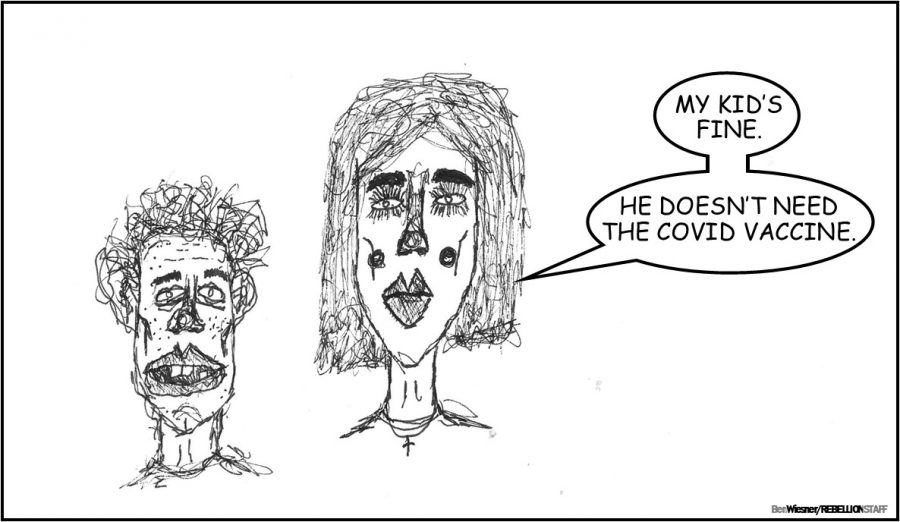Ignore social media and listen to experts on effectiveness of COVID-19 vaccine
February 22, 2021
Nearly 10% of the U.S. population has received a version of the COVID-19 vaccine since the first rollout of the Pfizer and Moderna vaccines in December, with a show of promising results thus far. However, according to a survey by Pew Research, 39% of Americans do not intend to get the vaccine. Is the distrust warranted?
According to the Food and Drug Administration (FDA) and the Centers for Disease Control and Prevention (CDC), the answer is a resounding no. Information available on the CDC website reads “all the COVID-19 vaccines being used have gone through rigorous studies to ensure they are as safe as possible.”
Many skeptics have pointed out the unprecedented speed in which the vaccines had been created and distributed, though according to Dr. Thaddeus Stappenbeck of the Cleveland Health Clinic, these doubts are unsubstantiated.
“It was a lucky thing that the technology has been robustly developed quite well over the last few years and tested in several animal models of infection, so we knew that it was safe and worked quite well in these models,” Dr. Stappenbeck said in an interview with Healthcare in Europe. “When Covid-19 emerged, this was an obvious opportunity to use this novel technology, and vaccine developers were poised to do it.”
Additionally, because COVID-19 was and is so widespread, many researchers and scientists had an increased number of test subjects, which also led to the vaccines being developed quickly.
Dr. H. Dirk Sostman, the Vice President of Houston Methodist, also attributed widespread funding as another key contributor.
“The tremendous financial support from the U.S. government is a huge reason a COVID-19 vaccine was brought to the public so quickly,” he said. “It allowed newer, faster vaccine technology to be used. Second, it’s going to expedite vaccine distribution in a way we’ve never seen.”
Another common misconception about the COVID-19 vaccines is that those who receive will get the virus, a claim that according to the CDC website is untrue. “Neither the recently authorized and recommended vaccines nor the other COVID-19 vaccines … can cause you to test positive (for the virus),” the site reads.
So, if the vaccines are proven to be safe and effective, then why are so many Americans hesitant to get vaccinated? According to research done by BioMed Central Public Health (BMC), a highly regarded medical journal hailing from the UK, the answer likely has something to do with “an unprecedented spread of misinformation” over social media and other online platforms.
“Misinformation and conspiratorial thinking has burgeoned in recent years” the paper reads, “misinformation related to COVID-19 is prolific (and has) negative consequences.”
An article published in the Latin American medical journal “Clinics” titled “Social Media: friend or foe in the COVID-19 pandemic?” further delves into this topic, and makes the assertion that “social media is extremely important to fight this contagious disease, not only to get information and be updated about it but also to understand how it spreads, how people interact, and how we can respond to it.”
Thus, it is generally agreed upon by experts that social media has played a prominent role in the spread of misinformation and misconceptions regarding the vaccines, so it is important to be cautious and only trust information provided by qualified individuals like doctors and other medical professionals.
Are the COVID-19 vaccines currently distributed in the U.S. safe? According to just about every expert on the topic, yes.
